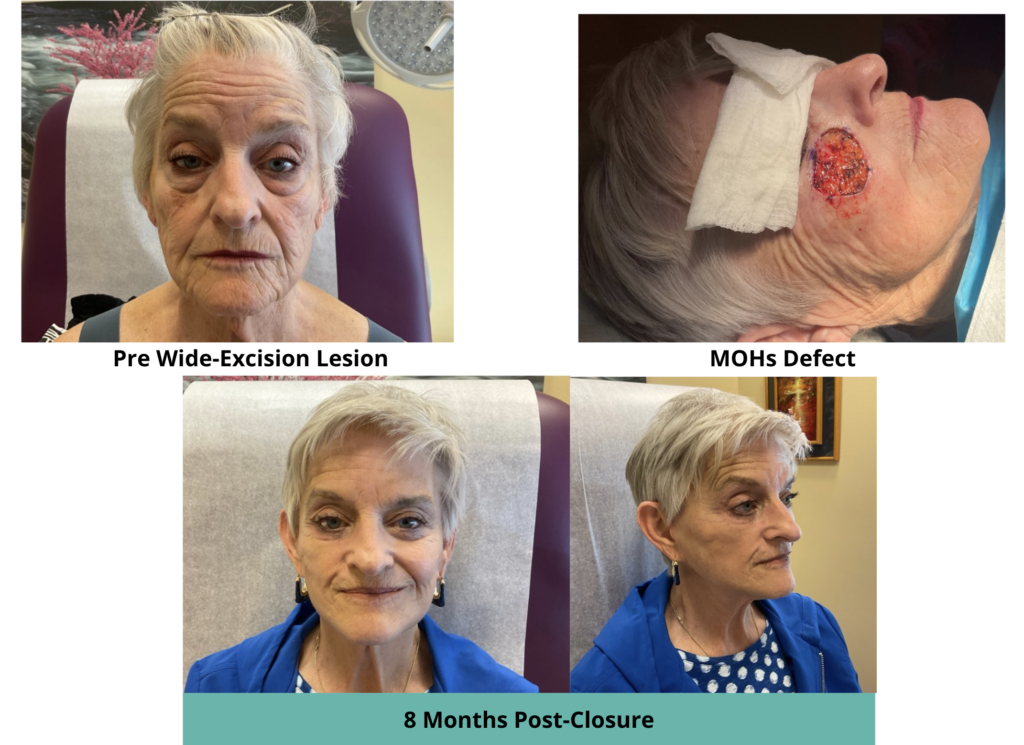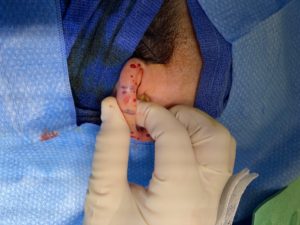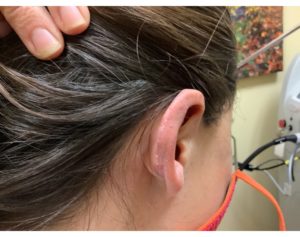Skin Cancer: Melanoma
What is melanoma?
Melanoma is a serious form of skin cancer, originating from the cells that pigment the skin, or melanocytes. Signs of melanoma can be determined using the “ABCDE” method: Asymmetry, Border, Color, Diameter, and Evolving. The earlier a melanoma is caught, the better the outcome of treatment and recovery. Some risk factors include fair skin, family history of melanoma, sun exposure, and history of blistering sun burns. Tracking new and changing moles is imperative to catch an early melanoma.
Treatment Options
For complete removal of a melanoma, surgery is most often the best course of action. All specimens are sent to a pathology lab for analysis to confirm that all of the cancer was completely removed. Depending on the size and location of the melanoma, Dr. Carter can excise the melanoma as an office procedure or coordinate surgery at an Outpatient surgery center. In either case, Dr. Carter utilizes reconstructive techniques to close larger areas, promote healing, and reduce scarring to enhance the final aesthetic result.
Coordination of Care
With more extensive melanoma cases, a referral to an oncologist may be appropriate for complete medical care. Additionally, a sentinel node biopsy may be necessary to determine if the melanoma has spread beyond the primary skin lesion. Before surgery, a tracer material is injected to allow visual identification of the nodes during surgery: this procedure is known as lymphoscintigraphy. The sentinel node can then be identified for biopsy and further analyzed at a lab. Dr. Carter and her team help to coordinate lymphoscintigraphy, surgery, and coordination of care during all stages of melanoma treatment.
Prevention
In order to prevent melanoma, there are some protective measures you can take throughout your day:
- wear sunscreen or protective clothing when you’ll be outside
- avoid sun tanning beds which expose you to harmful UV rays
- go to your dermatologist for regular skin checks
- know your family history of skin cancer and be aware if melanoma is present in your family
- be aware of changing moles on your body
Facial Reconstruction: Right lower eyelid canthopexy, right temporal tightening with scar revision to the right lower eyelid scar. Patient with history of melanoma to the right cheek

Ear Reconstruction. Patient with history of melanoma to ear




